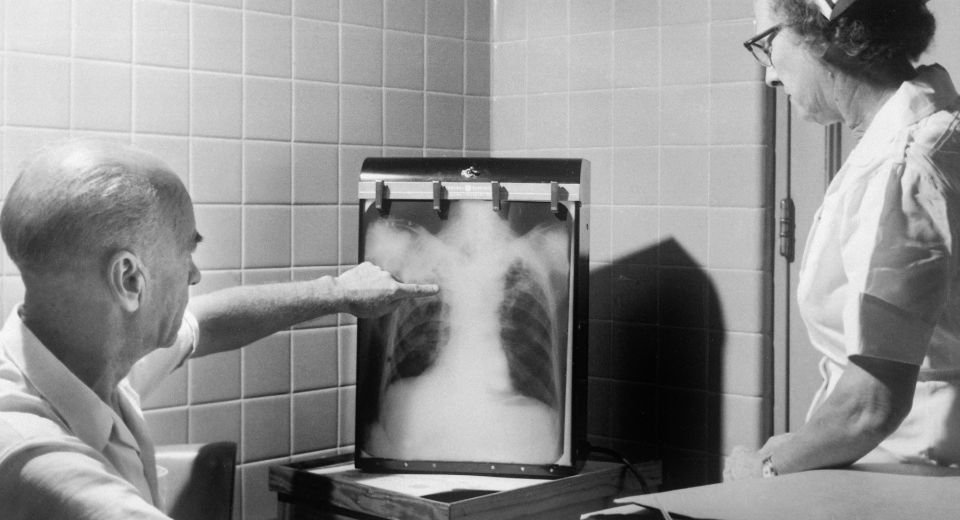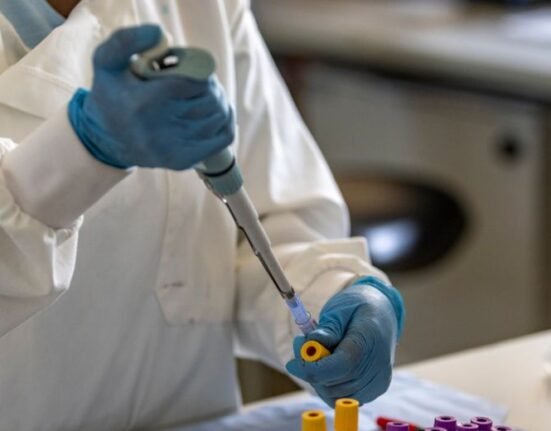By K Leelamoni
April 30, 2024: Tuberculosis (TB) is the world’s leading cause of death from a single infectious agent — next to coronavirus.
During 2021, reports show 10.6 million new cases and 1.6 million deaths due to TB globally. The low- and middle-income countries bear 80% of the TB burden. WHO’s End TB Strategy targets a 95% reduction in TB mortality and a 90% reduction in TB incidence worldwide by 2035.
One of the initiatives to achieve this goal is the development of a new and more effective vaccine against tuberculosis. Though the existing BCG vaccine prevents TB meningitis and disseminated TB in children, it does not prevent primary infection in adults.
Across all age groups
Hence a new vaccine that is effective across all age groups, especially adolescents and adults is the need of the day. Also, there is a need for novel vaccination strategies.
The Bacillus Calmette and Guerin (BCG) vaccine currently used is now over 100 years old and is one of the most widely used of all vaccines. It has been included in the WHO Expanded Program of Immunization since 1974 which was dedicated to infant immunization worldwide.
Despite some concerns regarding the vaccine against adult pulmonary TB, the BCG has been on the immunization program of several high TB burden countries and it is the first vaccine given to the newborn. However, since the BCG vaccine does not provide consistent and optimal protection against TB there is an urgent need for a more effective vaccine.
The ideal vaccine
This has prompted innovative approaches to accelerate vaccine development and many new candidate vaccines are in the development pipeline.
An ideal TB vaccine should be able to prevent primary infection and disease, prevent the reactivation of latent infection and act as an immunotherapeutic adjuvant to standard TB treatment. The new TB vaccines currently undergoing clinical trials include inactivated vaccines, recombinant BCG vaccines, subunit vaccines and viral vector vaccines.
The currently used BCG vaccine is typically administered through the intradermal route. The failure to generate long-lasting immunological memory in the lungs is being proposed as a possible cause for the poor level of protection when the vaccine is given intradermally.
Hence alternate routes are being studied in this regard. The first is oral. When the BCG vaccine was developed in 1921 it was initially administered orally and now there is a renewed interest in BCG oral immunization.
Newborn immunity
Absorption of the vaccine through oral mucosa can rapidly induce both local and systemic immunity. It is also easy to operate and safer. The BCG can also penetrate through the tonsils and intestinal epithelium in the newborn and induce specific immunity. However, it has been reported that the immunogenicity and efficacy of oral vaccines are lower in the developing world.
The second option is intranasal delivery. Vaccine delivery could also be done through aerosol spray. It was found that aerosol BCG induced a higher frequency of mucosal immune response than intradermal route. The TB bacilli also usually enter through the respiratory tract and the nasal route may be highly effective in protective immunity
Human studies are being undertaken to establish a safe and well-tolerated aerosol BCG vaccine.
Intra-pulmonary route
A third option is intravenous and intra-pulmonary routes — after studies in monkeys were found to provide more protection. However further clarifications are needed before human use. A good BCG booster vaccine can prevent not only the primary infection but also the progression of the disease in the infected individuals.
Since the current BCG schedule does not recommend a booster dose, it is worthwhile to explore the use of a booster dose to enhance the efficacy of the vaccine. Protection from the BCG vaccine may begin to wane as children get older and hence a booster dose for children above 10 years and adults is to be explored.
Several candidate vaccines are on the pipeline of which M72/ASO1 (M72) is found to provide about 50% protection over three years against active pulmonary TB in adults in studies in African countries.
Other vaccines
M 72 is a sub-unit vaccine developed by GSK in the UK comprising an immunogenic protein (M 72) derived from Mycobacterium TB and contains the GSK adjuvant ASO1 E.
It is the same adjuvant used in the Shingrix vaccine and the new malaria vaccine RTS, S/ASO1E. Though it is suggested that M-72 vaccine and BCG revaccination may substantially reduce the global TB burden, for greater clarification other candidate vaccines also need to be studied regarding efficacy and safety.
A newly developed genetically modified BCG has also demonstrated significant efficacy in clinical trials. BCG will likely continue to be used widely and it is therefore critical to understand the immune response to BCG to design improved BCG strains and novel technologies like genetically modified recombinant BCG for greater immunogenicity.
TB remains a formidable global challenge causing substantial mortality and morbidity due to the limited protection in the lungs provided by the current BCG vaccine. Since vaccination stands as the most economically efficient method for the prevention of tuberculosis, there is an urgent need for an effective vaccine and innovative approaches in our battle against tuberculosis.
(The writer was a former Head of the Department of Community Medicine at the Government Medical College in Kozhikode and Thiruvananthapuram and worked at the Amrita Institute of Medical Sciences in Kochi.)









2 Comments